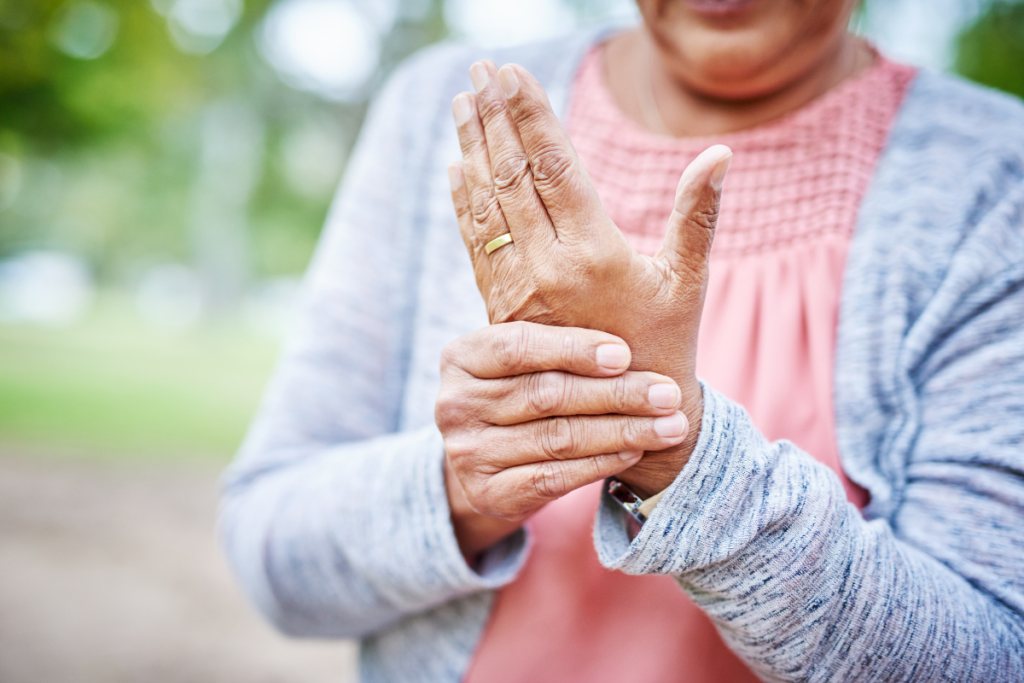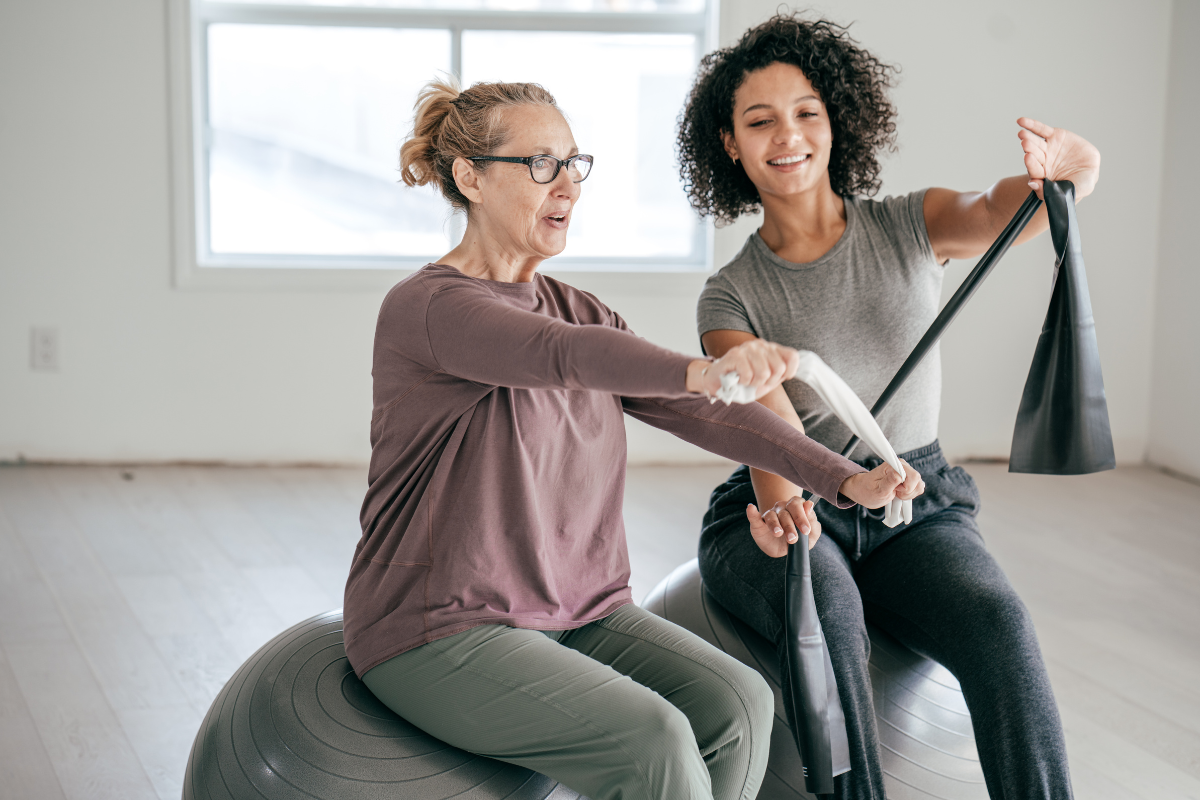Arthritis can make certain forms of exercise more difficult or even painful, making some people think they’ll need to give up an active lifestyle after their diagnosis.
While the thought of serious exercise might seem overwhelming to someone suffering from severe joint inflammation, the research shows that exercise can improve arthritis outcomes by a wide margin. Exercise strengthens muscles around joints, reduces general inflammation, and promotes bone health. Together, these go a long way to relieving chronic arthritis.
So, how can you get moving when exercise seems out of reach? Let’s dig into it, but first, a little on what arthritis is and why exercise should be a part of your treatment.

Understanding Arthritis
Arthritis is a group of joint diseases representing the most common cause of disability in the US. Arthritis causes painful inflammation in the affected joints and can often result in some degree of loss of mobility or reduced range of motion. While the results are often similar, these joint diseases are distinct and occur for distinct reasons.
Osteoarthritis
This form of arthritis affects the hands, hips, spine, and knees. Though it was once thought of as the result of cartilage breakdown around the joints, researchers now think the disorder affects the entire joint.
Though osteoarthritis is the most common type of arthritis and does tend to set in with advanced age, exercise and diet can be preventative just as much as they’re effective at managing symptoms.
Gout
Also called metabolic arthritis, gout results from the buildup of uric acid crystals in joints. These crystals form a byproduct of the breakdown of purines, which are prevalent in organ meats, red meat, alcohol, and some kinds of seafood. Gout can be treated with medication and a low-purine diet.
Rheumatoid Arthritis
This arthritis is one of many autoimmune issues that can develop from an overactive immune system unable to distinguish foreign threats from internal organs. Arthritis like Rheumatoid Arthritis developing from autoimmune inflammation can be treated like other autoimmune conditions and can be further managed with exercise, sound sleep, a healthy diet, and reduced stress.
Arthritis and Physical Activity
While exercise may seem like a bad idea for those dealing with arthritis, it can function as a critical part of your treatment. Far from taxing your sensitive joints, exercise will improve their strength and aid resistance to further degeneration. A sedentary lifestyle can hasten the onset of arthritis symptoms by weakening joint musculature.
If you’re looking for somewhere to start, these are just a few activities that can help preserve your joint health.

Resistance Training
Strength training, or resistance training, will help you build the muscle support your inflamed joints need. Remember to get plenty of rest and recovery time, and don’t push yourself on days with painful swelling. If you’re smart about your approach, you can simultaneously boost the muscles around your joints and your overall health.
Range of Motion
These exercises are ideal for combatting the stiffness that often comes with arthritis. They are usually fairly relaxing exercises that involve repeatedly and slowly working your joints to their full, natural range. Because they’re low intensity, they can be done frequently.
Aerobics
Aerobic exercise is important for your overall health. With a good aerobic exercise regimen, you’ll see improvements in your daily energy, stamina, and waistline. Not only that, but aerobic exercise has a soothing effect on general inflammation, which will make arthritis symptoms more manageable.

Let’s Develop an Exercise Program that Works For You
Always consult your doctor when making serious lifestyle changes, especially when dealing with a chronic health condition like arthritis. But, once you’re ready to start your fitness goals, including managing symptoms, EIM Personal Training is here for you. Reach out today to find out how we can get you moving and feeling better than ever.
Contact EIM Personal Training in Birmingham, AL Today
If you’re interested in learning more about how EIM Personal Training can help with diabetes management, give us a call at (205)536-6049 or schedule an appointment online today.
